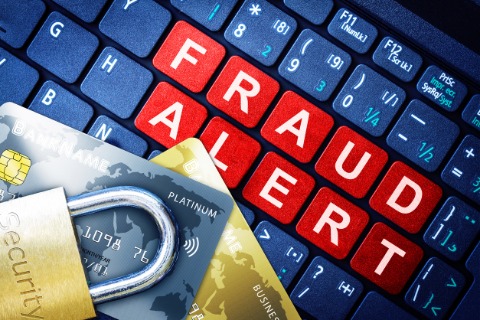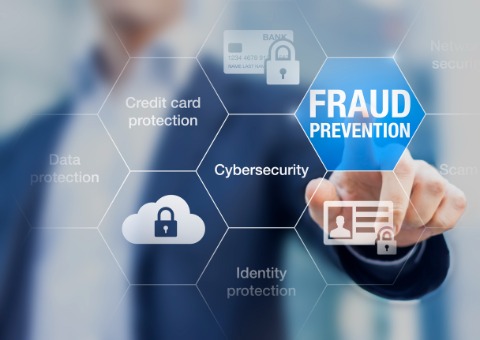
Scam and Fraud Awareness and Prevention
Knowledge is the key to prevention. Learn about scams and ways to protect yourself.
Are You Smarter Than a Fraudster?
 The goal of fraudsters is to trick you into doing things you normally would not do. Always take a step back and ask yourself - Is this really an emergency? Is this true? Do you know the person that is asking you to do something? Have you verified the information?
The goal of fraudsters is to trick you into doing things you normally would not do. Always take a step back and ask yourself - Is this really an emergency? Is this true? Do you know the person that is asking you to do something? Have you verified the information?
If you answer YES to any of the following questions, you could be involved in FRAUD or you’re about to be SCAMMED:
Is the person you are sending money to:
- Giving a sense of urgency?
- Threatening or scaring you or a loved one?
- Instructing you to purchase and send gift cards, any type of cryptocurrencies or cash through the mail?
- Coaching you on what to say to the bank or loved ones?
- Are you sending funds to someone you have never met in person?
- Are you cashing a check that is a greater amount than it should be and returning part of the funds back to the sender or new employer; or is the check drawn on a business or individual that is different from the person you’re in contact with?
- Did you respond to an email, phone call or text message requesting you to confirm, update or provide account numbers or personal information?
If any of the answers to the questions above is a YES, then chances are you are a victim of fraud and need to take immediate action to recover your funds and protect your identity. Below are some of the actions you should take immediately:
- If you paid with a debit or credit card or gave your bank account information, contact the company that issued the card or your bank immediately to close the account and report the fraud so an investigation can be initiated. This does not guarantee your money will be returned but will stop any additional funds from being removed or sent.
- If you gave your personal information, such as social security number, account numbers, address, date of birth or passwords, contact Identity Theft.gov at https://www.identitytheft.gov/#/. This site will assist you in reporting identity theft and get a recovery plan started.
- If you paid with a gift card, contact the gift card company and advise their cards are being used in a scam and you are a victim and ask them to refund your money. Be sure to keep the gift card itself and the gift card receipt to assist in their investigation.
- If funds were wired, contact your bank immediately to see if the wire can be stopped or reversed.
- If you paid using cryptocurrency or if you are a victim to a cyber-crime file a report with IC3 (Internet Crime Complaint Center) at https://www.ic3.gov/. This site also has some great information about current scams happening.
- If cash was sent through the mail, contact the U.S. Postal Inspection Service at (877)876-2455 to see if the package can be intercepted. Let them know you are a victim of a scam and give the details. You can also complete a report at Report – United States Postal Inspection Service (uspis.gov) . Another great resource is the USP Inspection Service Victim Help Resources located at https://www.uspis.gov/report/victim-help-resources
Outsmart the Fraudster
Outsmart the fraudster by being proactive and keeping up to date with scams. Knowledge is the key to prevention. Educate yourself about current scams to individuals and businesses in your area and understand the ways to protect yourself here.
 Remember…..
Remember…..
- IRS – The IRS DOES NOT CALL - If you get a call from someone claiming to be with the IRS, hang up! The IRS will send you a letter. The IRS will NOT request payment be made by gift cards, prepaid cards, or store cards or over-the-phone.
- Business email compromises – this will involve a spoofed email address (address is similar but off by one letter or digit) and it will request funds to be sent immediately. Never send funds requested via email, always verify either via phone call or in person with the person you received the email from. If verification by phone, always look up the company phone number from reliable source.
- Fake emails or calls from tech, utility companies or law enforcement where they want you to send money – they will tell you to act quickly or something bad will happen, and they request you purchase gift cards. The first sign that this is fraud is the request for gift cards. You don’t pay your bills or debts with gift cards. Good example of this type of scam is the grandparent/grandchild scam. Always verify with known sources and trusted people if what is being said is true.
- Never trust incoming text messages, emails or phone calls where they are asking you to provide personal information or banking information. Don’t give your personal information to a person you have never meant in person and who you do not have a trusting relationship with. Additionally, don’t click on any links unless it is something you have requested, know the person or company that sent it, and understand what the link is for. Beware of links: links are used by the fraudsters to download malware onto your system.
Keep Up-To Date on Scams
The Federal Trade Commission (FTC) provides scam alerts that monitor the current scams out there, in real time. Have a suspicious feeling about a phone call you received from an unknown number? Confused by an odd email from a business or financial institution? Before you respond, check with the FTC at Scams | Consumer Advice (ftc.gov) to see if you are a target of a current scam tactic. Stay educated and trust your gut feelings! If it doesn’t feel right, check before clicking.
Be Proactive
Knowledge is the key to prevention. Educate yourself about scams to individuals and businesses and ways to protect yourself with the provided links above or articles below.
https://www.consumerfinance.gov/consumer-tools/fraud/
https://www.fdic.gov/resources/consumers/consumer-news/2021-10.html
Video Ad (youtube.com) (Good Morning America Rebecca Jarvis reporter on scams)
https://www.aarp.org/money/scams-fraud/info-2023/top-scammer-list.html
https://www.experian.com/blogs/ask-experian/the-latest-scams-you-need-to-aware-of/